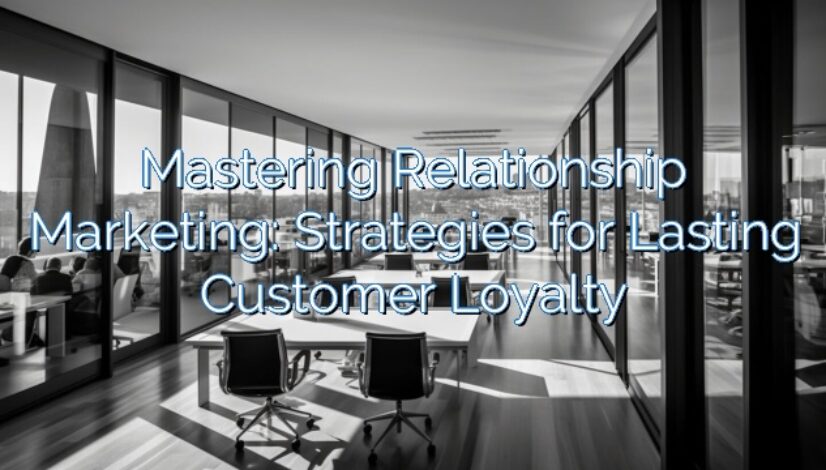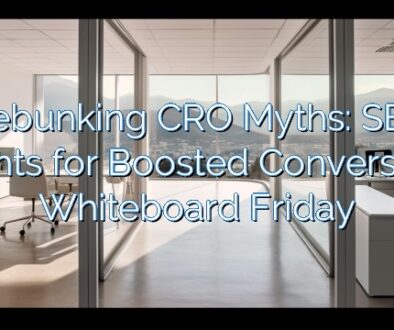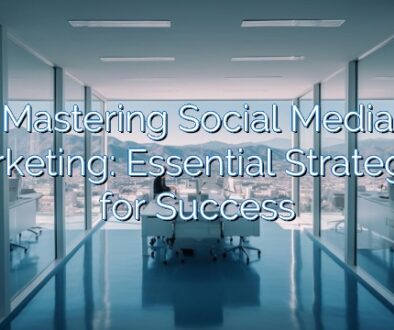Mastering Relationship Marketing: Strategies for Lasting Customer Loyalty
The Pivotal Role of Relationship Marketing in Thriving Modern SMBs and Nonprofits
Words are powerful, but relationships? They’re the cornerstone of any successful digital marketing strategy, greatly influencing the heartbeats of small-to-medium-sized businesses (SMBs) and nonprofit organizations. Today, let’s delve into the rich tapestry of relationship marketing, unraveling its nuances and how it can be the key to unlocking unprecedented loyalty and growth.
Unveiling the Essence of Relationship Marketing
Imagine if every customer became a repeat buyer – a walking, talking ambassador for your brand. That’s the dream, right? Well, relationship marketing is the pathway to turn this into reality. This customer-centric approach focuses on nurturing long-lasting connections, rather than one-off sales. It’s about creating an experience so delightful that it not just retains customers, but also turns them into vocal advocates for your brand.
Consider this: satisfaction isn’t just a buzzword; it’s the fuel that powers the loyalty engine. A customer’s repeat business and willingness to try new offerings are often reflective of how valued they feel. A customer who feels appreciated is often the one who will choose your brand, repeatedly, over any other option available.
And here’s where it gets even sweeter – relationship marketing doesn’t just boost customer retention, it’s also more cost-efficient than customer acquisition. Let me paint a picture for you: a small 5% increase in retention can hike revenue by 25–95%. Doesn’t that just make you want to dive straight into refining your customer engagement strategies?
The Many Faces of Relationship Marketing Success
Across various sectors, giants and startups alike are harnessing the power of relationship marketing. Take Capital One, for instance. They turned the dreaded airport security line into an opportunity to delight travelers. By reimbursing the TSA PreCheck fee, they managed to make a frustrating part of traveling a bit less tedious. The result? A tangible, memorable benefit that keeps customers loyal.
Delta Airlines takes relationship marketing up a notch with its SkyMiles program, transforming every dollar spent into future travel opportunities. Not only does this encourage repeat bookings, but it also makes customers feel like valued partners in the journey, not just passengers.
But relationship marketing isn’t limited to lifestyle perks or rewards points. It extends into the emotional and practical aspects of customer interactions. Offering warranties that last a lifetime, standing by quality promises, and delivering exceptional, personalized customer service – these are the golden keys to customer hearts.
Strategizing Relationship Marketing for Audience Engagement
The common thread running through successful relationship marketing is a deep understanding of customer personas. Are your customers tech-savvy millennials, or are they time-strapped parents looking for quick solutions? Identifying where your customers are in their digital journey informs the type of content you should create and the channels you should leverage.
Take technology’s helping hand in personalizing interactions. CRM systems, chatbots, and automated email sequences may seem impersonal at first glance, but they can be customized to address individual customer needs, assuring them that your brand understands their unique challenges and desires.
Incentives and rewards tailored to past purchasing behavior not only make your customers feel seen but also gently lead them back to your doorstep. The message is clear: ‘We value you, and we show it by making each interaction with us rewarding.’
In Content We Trust: The Storytelling Dimension
Compelling narratives can transform customers into a loyal audience, eagerly waiting for the next chapter of your brand’s journey. Customers don’t just want products; they seek experiences, stories that resonate, and content that enriches their lives. Marriott’s ‘Two Bellmen Three’ film is a testament to how out-of-the-box storytelling can broaden a brand’s appeal and create a lasting imprint.
The same concept applies to educational content – blogs, webinars, and e-books that answer questions and solve problems can cement a brand as a trusted expert in its field. When your content engenders trust, you’ve set the stage for a long-term relationship.
Turn Feedback Loops into Improvement Springboards
Relationship marketing is not a monologue; it’s a conversation. Active listening – through surveys, feedback forms, and social media engagement – gives you invaluable insights into what your customers love, expect, and need from you. Use this to tailor your products and services, thereby reinforcing the worth of customer opinions and encouraging loyal behavior.
Now, put yourself in your customers’ shoes. What would make you stick around as a customer for the long haul? Chances are, it’s a brand that not only meets your needs but anticipates them, values your feedback, and rewards your loyalty in meaningful ways.
Implementing a customer-first strategy may seem daunting, but with nuanced planning and genuine passion, it’s certainly within the realm of possibility.
Mastering the Art of Long-Term Customer Bonds
As we ride the waves in the ocean of digital marketing, it’s increasingly evident that long-term strategies, like relationship marketing, often herald the most rewarding outcomes. SMBs and nonprofits that adopt this approach can expect to not only meet but exceed their customer retention and revenue targets over time.
So, are you ready to forge unbreakable bonds with your audience? Let’s start with a conversation. Book a 15-minute call with me, Alex Casteleiro, at https://reach.alexcasteleiro.com, and let’s collaborate to embrace the future of digital marketing together!
FAQs About Relationship Marketing
1. How does relationship marketing differ from traditional marketing?
Relationship marketing focuses on nurturing long-term customer relationships and loyalty, while traditional marketing typically concentrates on single, sales-centric transactions. The goal is to create a meaningful connection with the customer over a longer period.
2. Can small businesses benefit from relationship marketing?
Absolutely! Small businesses can benefit greatly from relationship marketing because it can lead to a dedicated customer base that provides consistent revenue and word-of-mouth promotion.
3. What’s the first step in creating a relationship marketing strategy?
Understanding your customers deeply — their needs, preferences, behaviors, and values is the first step. This helps in tailoring experiences and interactions that resonate with them on a personal level.
4. How important is personalization in relationship marketing?
Personalization is critical in relationship marketing. It shows that a business values its customers as individuals, which is a key factor in building loyalty and satisfaction.
5. Can relationship marketing work for nonprofits?
Yes, for nonprofits, relationship marketing can be vital in building a community of supporters who are committed to the cause, leading to sustainable funding and advocacy.
[ad_2]
Inspiration Source link




